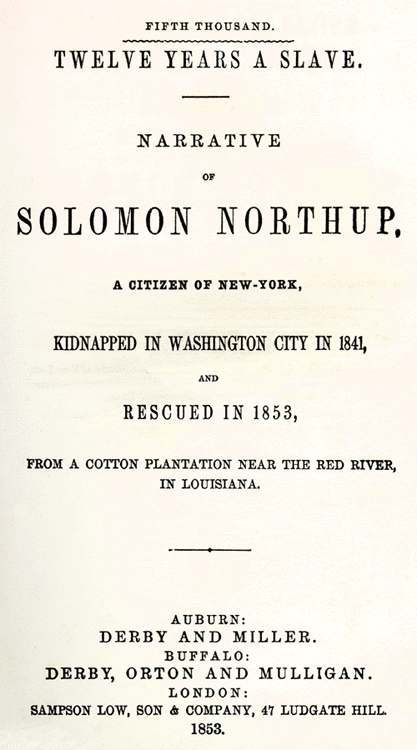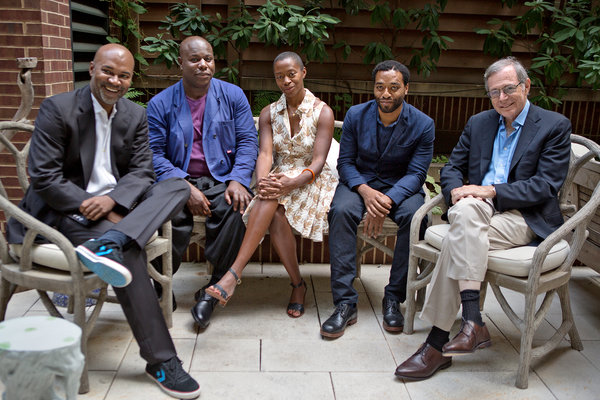
Excerpts from Original, Twelve Years a Slave:
Narrative of Solomon Northup, a Citizen of New-York, Kidnapped in Washington City in 1841, & Rescued in 1853: Electronic Edition.
Solomon Northup (b. 1808)
I came across this interesting roundtable discussion in the NY Times
An Essentially American Narrative A Discussion of Steve McQueen’s Film ‘12 Years a Slave’. The roundtable members selected are interesting. Kara Walker, one of my favorite artists, is the only female and seems to be charged with being the heavy on intersectionality issues as she engaged sex and power in a way other roundtable members didn’t.
I also find it interesting that Foner objected to the analogy the filmmaker made between prison industrial complex and slavery. To some extent I agree, but on the other hand, I agree more with Faulkner that, “The past is never dead. It’s not even past.” Chattel slavery and the current prison system’s life-long disenfranchisement of formerly incarcerated Black men and women have a lot more in common than many want to admit.
Reading the article also led me to explore a sort of thought experiment. How amazing it would be for my ancestors, enslaved Africans, to see this interracial dialogue on slavery. It is chilling to know we can discuss the matter intellectually at some distance. We may even depict the lives of enslaved Africans and captured free Blacks on film, and leave that imaginary behind when we click the mouse, turn the page, or leave the theater. We aren’t stuck there. They had to die there.
I can’t wait to see the film.

Ruth Fremson/The New York Times.
From left, the writer Nelson George, who moderated a discussion of “12 Years a Slave” in SoHo with the film’s director, Steve McQueen; the artist Kara Walker; the lead actor, Chiwetel Ejiofor; and the historian Eric Foner.